Managing a construction project is no small task. From planning and budgeting to coordinating contractors and ensuring quality, each step requires careful attention and expertise. Construction projects, whether residential, commercial, or industrial, involve many moving parts that must be precisely managed to stay on schedule, within budget, and up to high standards. This is where a construction manager makes all the difference. A construction manager brings specialized knowledge, oversight, and organization to ensure smooth project completion with outstanding results. Here’s why hiring a construction manager is one of the best decisions you can make for your project. Find out here the facts about the question, why hire a construction manager. See the benefits here and what they can do for your project.
Expert Planning and Budget Control
Effective planning is the foundation of any successful construction project. A construction manager collaborates with clients to define goals, set realistic budgets, and create a comprehensive project timeline. They develop a detailed plan that outlines every step, ensuring all team members are aligned from the start.
Budget control is another essential aspect of project management. A construction manager continuously monitors spending and keeps an eye on costs, preventing budget overruns. They identify cost-saving opportunities and work to keep the project within financial limits. With a clear plan and budget oversight, construction managers help reduce surprises and keep projects on track financially.
Efficient Project Coordination
Construction projects involve multiple teams, including architects, engineers, contractors, and suppliers. Coordinating all these moving parts can be overwhelming, but a construction manager handles it seamlessly. They act as the central point of contact, ensuring that everyone understands their roles and responsibilities.
By organizing schedules and streamlining communication, construction managers prevent bottlenecks and scheduling conflicts. This efficient coordination ensures each phase is completed in the correct order and keeps the project on schedule. With a construction manager overseeing the logistics, projects run smoothly from start to finish.
Access to Reliable Contractors and Resources
Hiring the right contractors is essential for quality work. Construction managers have a network of reliable professionals, from carpenters to electricians, ensuring that only qualified and experienced individuals work on the project. This access to trusted contractors reduces the risk of poor workmanship, delays, and rework.
Additionally, construction managers work closely with suppliers to secure quality materials at competitive prices. By leveraging these relationships, they help save costs on essential resources. With a construction manager’s connections, you gain access to high-quality contractors and materials, ensuring better outcomes for the project.
Quality Assurance and Regular Inspections
Quality control is a top priority in any construction project. Poor quality work can lead to expensive repairs, safety risks, and a decrease in the overall value of the property. A construction manager conducts regular inspections at each phase, ensuring that all work meets required standards and specifications.
By maintaining strict quality control, construction managers identify potential issues early and address them immediately. This dedication to quality means fewer problems after the project is complete. With a construction manager overseeing quality assurance, clients can trust that the final result will meet high standards and provide lasting value.
Proactive Risk Management
Construction projects come with inherent risks, from unexpected weather changes to material shortages and design changes. A construction manager identifies potential risks early in the process, creating a strategy to mitigate them before they impact the project.
When unforeseen challenges arise, a construction manager has the problem-solving skills and industry experience needed to adapt and keep the project on track. By managing risks proactively, construction managers reduce delays and prevent costly setbacks. This proactive approach gives clients peace of mind, knowing that their project is being managed effectively.
Compliance with Regulations and Permits
Navigating building codes, permits, and regulatory requirements is complex but crucial. Failing to meet legal requirements can result in fines, delays, or even halting the project. Construction managers are well-versed in local building codes and regulations, ensuring that all work complies with these standards.
A construction manager handles the permitting process, secures necessary approvals, and schedules inspections, keeping the project legally compliant. By overseeing these regulatory requirements, they protect clients from potential legal issues and ensure a smooth, uninterrupted workflow.
Clear Communication and Transparency
Effective communication is essential for successful construction projects. Miscommunication between clients, contractors, and suppliers can lead to mistakes, delays, and frustration. Construction managers serve as the primary point of contact, facilitating clear and consistent communication among all parties involved.
Clients receive regular updates on project progress, milestones, and any challenges that arise. This transparency keeps clients informed and allows them to make timely decisions. With a construction manager overseeing communication, everyone stays aligned, reducing misunderstandings and promoting a smooth process.
Timely Project Completion
Meeting deadlines is critical in construction, as delays can lead to additional costs and affect project value. A construction manager creates a realistic timeline and carefully monitors each phase of the project to ensure it remains on schedule. They anticipate potential delays and adjust plans as necessary to keep the project moving forward.
When challenges arise, a construction manager’s expertise in time management minimizes their impact. By staying on top of timelines, they help complete the project on schedule, preventing extra expenses and ensuring clients can use the space as planned.
Increased Return on Investment
A construction project is a significant financial commitment, and maximizing return on investment (ROI) is essential. A construction manager’s role in maintaining budgets, controlling quality, and managing schedules enhances the overall value of the project. By ensuring that resources are used effectively and that quality standards are met, construction managers help protect the project’s long-term value.
For property owners planning to sell or lease, a professionally managed project increases market appeal and can lead to higher property values. With a construction manager’s guidance, clients benefit from a higher ROI, making their investment more rewarding.
Reduced Stress and Peace of Mind
Managing a construction project on your own can be overwhelming, especially if you lack industry experience. A construction manager takes on the responsibility of overseeing every detail, allowing clients to focus on other priorities. They handle the logistics, problem-solving, and coordination, giving clients peace of mind.
With a construction manager at the helm, clients can enjoy the construction process without the stress of daily management. Knowing that an experienced professional is handling the project’s complexities makes the experience more enjoyable and less daunting.
Conclusion
Hiring a construction manager is one of the best ways to ensure a successful construction project. From comprehensive planning and budget control to quality assurance and risk management, construction managers bring essential expertise that streamlines processes, improves outcomes, and enhances project value. They oversee every detail, ensuring that the project stays on track, within budget, and up to high standards.
For anyone considering a construction project, partnering with a construction manager is a smart decision that leads to better results, reduced stress, and lasting value. Whether it’s a small renovation or a major development, a construction manager provides the oversight and expertise needed to turn a vision into reality.


